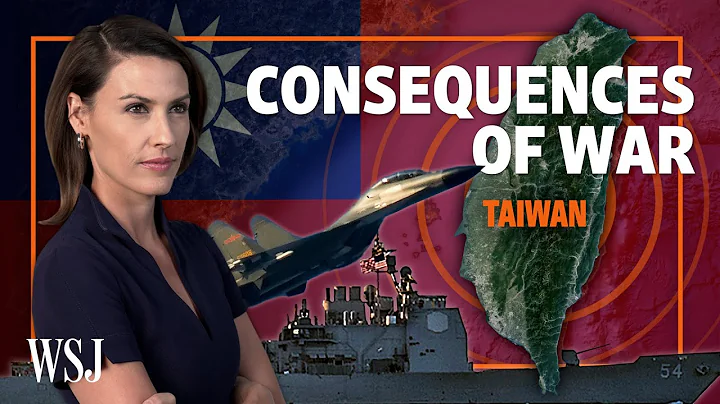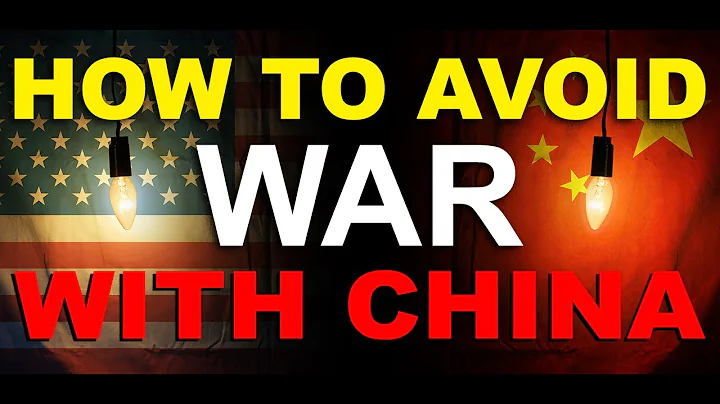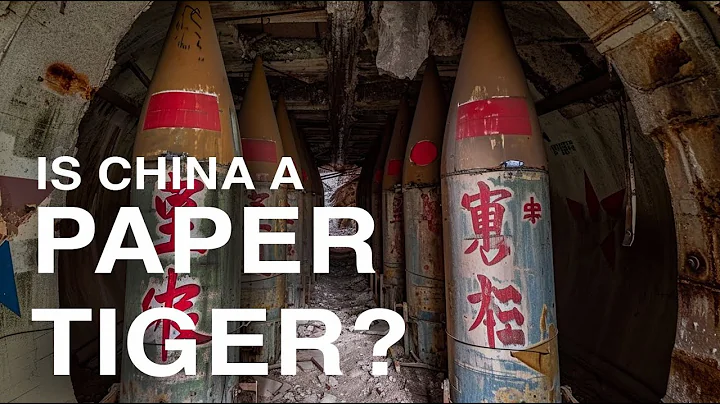On the road to "Taiwan independence", Tsai Ing-wen is like an "addict" who falls in love with drugs, and more like a "gambler" addicted to gambling. She is kidnapping 23 million Taiwanese people onto the chariot of "Taiwan independence" . What is worth noting is that in the face of the "danger of war" and the "danger of war" in peace in the Taiwan Strait, all walks of life on the island are confused by the opium of public opinion that "the mainland will not use force against Taiwan" promoted by the Democratic Progressive Party authorities, and do not seem to realize that " The danger brought to them by "Taiwan independence" is approaching step by step. Therefore, we are indifferent to any risky actions taken by Tsai Ing-wen and the DPP authorities in cross-strait relations. Perhaps it is for this reason that Tsai Ing-wen mistakenly believed that every retrograde "Taiwan independence" step she took had the support of all walks of life in Taiwan, so she became even more unscrupulous. During Taiwan's so-called "Double Tenth Day" speech on October 10, Tsai Ing-wen no longer concealed "Taiwan independence", completely took off the mask of "hidden independence" in the past, and openly launched an upgrade to the "two-state theory." What is noteworthy is that in this so-called conversation, Tsai Ing-wen also revealed that she wants to do a "big thing" during her term of office - to change the name and territory of the regime. Observers on both sides of the Taiwan Strait pointed out that Tsai Ing-wen's "talk" has openly pushed Taiwan to the brink of war. At this time, the Taiwanese people only know the "peaceful reunification" emphasized by the mainland, but have they noticed that there have been many spokespersons for the Taiwan Affairs Office of the State Council since the year before last year? Emphasizing for the first time that "'Taiwan independence' will only bring disaster to the Taiwanese people"? Do you understand the meaning behind this sentence?

Tsai Ing-wen’s “Double Ten Speech” hinted at changing the name and territory of the regime?
On October 10, Taiwan leader Tsai Ing-wen took advantage of Taiwan's so-called "Double Tenth Day" to issue an out-and-out "Taiwan Independence Talk." Compared with the "Double Tenth Day" when she first came to power and her first inaugural speech, this "talk" Tsai Ing-wen is tougher than all her previous speeches. In the past, when referring to the mainland, she not only called "China" directly, but also used "mainland" and "the other side" interchangeably. This time, she only called "China" in her speech, and her attitude was unprecedentedly arrogant.
In response to Tsai Ing-wen's "talk", the evaluations from all walks of life on both sides of the Taiwan Strait are basically summarized in three points:
First, it incites the "one country on each side" argument. Tsai Ing-wen's speech celebrated the 110th anniversary of the founding of the "Republic of China". She always added a suffix to "Republic of China" and called it "Taiwan, the Republic of China". There is no mention of the period of history from 1911 to 1949, not even the words Revolution of 1911 nor the name of Sun Yat-sen.
The second claim is that no one can let it follow the path set by China. Throughout Tsai Ing-wen's speech, it was tougher than any of her previous speeches. She threatened to strengthen defense capabilities and ensure that "no one can force us to follow the path set by China."
The third is to upgrade the “two-nation theory”. In her speech, she claimed the so-called "four insistences", which was in sharp contrast to similar speeches in the past. The four words "non-subordination" she said were extremely provocative and were tantamount to declaring the "two-nation theory". ". This is a blatant violation of mainland China's bottom line.
Regarding Tsai Ing-wen’s “talk” this time, it is actually a commonplace talk since her second term. What is worthy of vigilance is the so-called "non-subordination" mentioned by Tsai Ing-wen, which indicates that Tsai Ing-wen will put aside her "reclusive independence" face in the past few years and reveal her true "Taiwan independence" appearance.
However, this is the fourth time in the past month that Tsai Ing-wen has openly declared the "neighborhood theory".
After Tsai Ing-wen used the opportunity of an interview with foreign media to throw out the so-called "neighboring country theory" some time ago, when attending an event on October 8, Tsai Ing-wen once again declared that "Taiwan does not seek military confrontation and hopes to maintain peaceful relations with 'neighboring countries'" , stable, predictable, and reciprocal coexistence.” Obviously, Tsai Ing-wen defines Taiwan as a so-called "country" between the lines, and declares that she hopes to coexist with "nearby countries." Who does she refer to by "nearby countries"? It is undoubtedly a replica of her previous so-called "neighboring country theory", and the background of the so-called "neighboring country theory" is Lee Teng-hui's so-called "neighboring country theory". In addition, Tsai Ing-wen recently submitted an article to the American journal "Foreign Affairs", and the title she used ("Taiwan President") also has a strong "Taiwan independence" flavor.
It is not surprising that Tsai Ing-wen publicly clamored for the "neighborhood theory". Ever since she refused to accept the " 1992 Consensus " on the day she took office, Tsai Ing-wen has always said that Taiwan is a "sovereign country" for more than five years. Even on the signatures when visiting "friendly countries", the name of the regime used is "Taiwan, Republic of China". They are just worried about the backlash of public opinion on the island, so they are just playing "secret independence".
Just as the DPP's "independence seeking" is not worth talking about, for Tsai Ing-wen, who has regarded "Taiwan independence" as her lifelong pursuit, her "independence seeking" is naturally not surprising. But the key is to understand what methods Tsai Ing-wen will use to "seek independence" and how she will treat Tsai Ing-wen and the DPP's "seeking independence" when she and the DPP have complete control of all public power resources in Taiwan's administration, judiciary, and legislation. What is the attitude of Taiwanese people and all walks of life towards the "independence" behavior is more important.
reporters noticed that since Tsai Ing-wen and the Democratic Progressive Party regained power over Taiwan in 2016, their "independence" methods have been more sophisticated and vicious than during the Chen Shui-bian period. On the one hand, through the establishment of inappropriate party property committees and so-called "transitional justice" institutions, the largest opposition party on the island, the Chinese Kuomintang, was "ransacked", "genocide" and "digging up ancestral graves" to bring down the country's largest opposition party. With the advantage of being in power, it will further expand "de-Sinicization" in social education and other fields and persecute and suppress the "unification faction" on the island. On the other hand, under Tsai Ing-wen's instructions, the Democratic Progressive Party took advantage of its absolute majority in the "Legislative Yuan" to amend bills that are conducive to "Taiwan independence" including lowering the threshold for referendum laws. It attempts to maintain its long-term rule through "amending the law" and clear legal obstacles for "legal Taiwan independence". At the same time, it instructs the "legislators" of the Democratic Progressive Party in the "Legislative Yuan" to propose a bill to amend the "Constitution" on territorial sovereignty, in order to challenge the mainland and Test the temperature of political parties and people on the island.
In 2018, the DPP’s attempt to “amend the constitution” failed to materialize due to obstruction by the People’s First Party group. But Tsai Ing-wen never gave up on this. In fact, it is not easy for Tsai Ing-wen to realize her so-called "Taiwan independence" ideal at present. The biggest obstacle facing her is the "Constitution" that is still in effect in Taiwan, because the "Constitution" stipulates that The name of the regime is "Republic of China", and the territory of "Republic of China" is clearly stated in the "Constitution" to include Taiwan, Penghu, Jinma and mainland China. In other words, the leader Tsai Ing-wen elected in accordance with this law must recognize that both sides of the Taiwan Strait belong to the same China, but this is precisely the constraint that Tsai Ing-wen wants to get rid of.
For this reason, in Tsai Ing-wen’s view, the “Constitution” currently being implemented in Taiwan must be revised. Before the "constitutional amendment", she had used various means to name the regime "Taiwan, the Republic of China" on various occasions. Strictly speaking, Tsai Ing-wen, who calls for a "free and rule of law" society every day, has been " unconstitutional " since she took office.
Therefore, to achieve "Taiwan independence", amending the "Constitution" has become Tsai Ing-wen's top priority. However, it is more difficult to "amend the constitution" in Taiwan. For this reason, she threw out the following paragraphs in this "talk":
"We need to meet the needs of national development and target the government system and Organization, local systems, land planning and regional development and other important governance issues, make necessary reviews and adjustments..."
"Among them, the reform of the constitutional system is something that the Legislative Yuan Constitutional Revision Committee must face. It has been established that this constitutional reform will be based on the "Constitution of the Republic of China" and on the premise of safeguarding the democratic and free constitutional system. "
" I understand that the threshold for amending the constitution is very high. I would like to call on the ruling and opposition parties to The issue of constitutional reform is at stake...Both the ruling party and the opposition must put aside their prejudices..."
According to a former "legislator" staff member of the DPP and a current DPP worker, Tsai Ing-wen's "Double Ten Talks" , has publicly declared to the people on the island and the opposition parties that they want to "revise the constitution" and hope that the "government and opposition parties" will unite to support it.Tsai Ing-wen's modification of "territory" is hidden in the first paragraph of the above three paragraphs, "territorial planning." In order to blur the concept of "territory", it is placed before "regional development", which can paralyze the Kuomintang and ordinary people, and create What makes people think that this "land planning" is not "territorial division".
It should be said that Tsai Ing-wen did have "good intentions" when she wrote this "speech". She was hinting that the DPP authorities would amend the territorial provisions in Taiwan's "Constitution" and smuggle in "Taiwan independence" from a legal perspective. This cannot be Not to mention it is a dangerous step that will push Taiwan into war.
How will the Democratic Progressive Party achieve "de jure Taiwan independence"?
Regarding the DPP authorities’ attempt to “amend the constitution,” some media on the island have long warned that it would be “difficult to achieve success.”
According to Taiwan's current "Constitution", changes to sovereign territory must be proposed by more than 3/4 of the "legislators" of the "Legislative Yuan", approved by 2/3 of the "legislators" present, and then approved by a vote by all Taiwanese citizens. It is considered established.
However, according to the current number of seats in the "Legislative Yuan" of the DPP, the total number of seats in the "Legislative Yuan" is 113. The DPP has 61 seats, the Kuomintang has 38 seats, the People's Party 5 seats, and the "Power of the Times" has 3 seats. "Taiwan Foundation" won 1 seat, and those without party membership or without political party recommendation won 5 seats.
If according to the provisions of Taiwan's "Constitution", "constitutional amendment" needs to be proposed by 3/4 of the "legislators" and passed by 2/3 of the "legislators", even if the Democratic Progressive Party adds the "Power of the Times" and the "Taiwan Foundation Progressive Party" The total number of "legislators" of the three radical "Taiwan independence" parties does not reach 3/4 of the "legislators", so it is obviously unrealistic for the DPP to amend it in accordance with the provisions of the "Constitution".
To this end, Tsai Ing-wen has tasked the Central Committee of the Democratic Progressive Party to coordinate the "legislators" of the Democratic Progressive Party to take a "curvy way to save the country" and first form a "Constitutional Amendment Group" of the "Legislative Yuan" to propose a constitutional amendment plan. In this plan, the Democratic Progressive Party The party proposes to lower the threshold for "constitutional amendment". Once the threshold for "constitutional amendment" is lowered and the name and territory of the regime are modified, the DPP can use its absolute advantage in the seats in the "Legislative Yuan" to pass "constitutional amendment" and achieve "de jure Taiwan independence." ".
According to You Xikun, the leader of Taiwan's "Legislative Yuan" and a die-hard "Taiwan independence" element, he recently revealed to the media that "the constitutional amendment proposal has been included in this session" and the contents of Tsai Ing-wen's above three "conversations", it is certain that the democratic people The Progressive Party is ready to revise and lower the threshold system for "amending the constitution" during this session. As for the proposal to lower the threshold for "amending the constitution", since the DPP has an absolute advantage in the "Legislative Yuan", there is a high probability that the proposal will be passed. thing.
It is worth noting that once the proposal is passed, it will open the door for the DPP to "amend the constitution" in the next step, and it will also remove institutional obstacles for Tsai Ing-wen and the DPP to move towards "de jure Taiwan independence" in the future. This will also push the Taiwan Strait to the brink of war.
"Taiwan independence" will bring a disaster to the Taiwanese people.
For Tsai Ing-wen and the Democratic Progressive Party, they have been on the road to "Taiwan independence" in recent years, especially when she was elected in the 2020 regional leadership election with 8.17 million votes. Tsai Ing-wen's re-election has further expanded her position.
In the eyes of Tsai Ing-wen and the Democratic Progressive Party, if you want to be elected in Taiwan, "anti-China" and "hatred of China" are the source of votes. As long as you sell "dried mango" (a homonym for "feeling of national subjugation"), you will be supported by the majority of Taiwanese voters. . This phenomenon also led some people in the Chinese Kuomintang to mistakenly believe that the Kuomintang lost the election because it was not "anti-China" and was discredited.
Although this understanding is not objective, a phenomenon worth noting is that although Tsai Ing-wen has repeatedly hyped up "anti-China" and "hatred of China" over the past few years, which has led to cross-strait relations reaching the level of "military war", Tsai Ing-wen The support rate is always above 50%. This phenomenon in turn stimulated Tsai Ing-wen and the DPP, allowing Tsai Ing-wen and the DPP to see that as long as they manipulate cross-strait issues and hype "anti-China" and "hate-China" issues, they can get rid of the DPP's ineffective governance. The resulting public resentment can cover up the DPP corruption scandal. There is a factor worthy of attention hidden behind this phenomenon - although the Taiwanese people's attitude towards Tsai Ing-wen and the Democratic Progressive Party's "Taiwan independence" may not necessarily be supportive or helpless, at least they are ambiguous and dare not oppose it.
However, the Democratic Progressive Party and Tsai Ing-wen are running on the road of "Taiwan independence" without boundaries, but the mainland has drawn a red line for it. Once the red line is stepped on, Taiwan will inevitably face earth-shaking. In other words, once the "Taiwan independence" forces and the DPP step on the red line, the mainland will immediately activate the anti-secession law. By then, it will be difficult for the Taiwanese people to avoid disasters caused by the DPP's "Taiwan independence" activities. This is the meaning behind the spokesperson of the Taiwan Affairs Office of the State Council who has repeatedly emphasized that "'Taiwan independence' will only bring disaster to the Taiwanese people."
Anyone who studies cross-strait relations knows that the spokesperson of the Taiwan Affairs Office of the State Council does not speak as casually as the spokesperson of the Taiwan Mainland Affairs Council. The spokesperson of the Taiwan Affairs Office of the State Council carefully considers every word when answering every question, and every word is worth a thousand dollars. But the sentence "'Taiwan independence' will only bring disaster to the Taiwanese people" has been said no less than four times this year. In recent years, there has been a popular saying in Mainland China: "Say important things three times." But this has happened more than three times. Do the DPP authorities, Tsai Ing-wen, and the Taiwanese people really understand the meaning behind this meaningful statement from the Taiwan Affairs Office of the State Council?
Despite repeated provocations from the Taiwan Democratic Progressive Party and "Taiwan independence" forces, the mainland has always believed that the blood of compatriots on both sides of the Taiwan Strait is thicker than water, and still proposes that peaceful reunification is in the best interest of the Chinese nation as a whole. However, all walks of life on both sides of the Taiwan Strait should understand, especially those in Taiwan who have an ambiguous attitude towards the "Taiwan independence" forces and Tsai Ing-wen. They should understand clearly that "Taiwan independence" is the greatest threat to undermine cross-Strait peace and the greatest hidden danger to undermine the great rejuvenation of the nation. Only when compatriots on both sides of the Taiwan Strait jointly oppose "Taiwan independence" and enhance the consensus that both sides of the Taiwan Strait belong to one China can there be peace in the Taiwan Strait, be in line with the well-being of compatriots on both sides of the Taiwan Strait, and can we prevent "Taiwan independence" from bringing war disasters to Taiwan compatriots.
Source: "People's Political Consultative Conference" (page 5, October 23, 2021)
Reporter: Gao Yang
Page editor: Gao Yang
New media editor: Huang Zhe





















